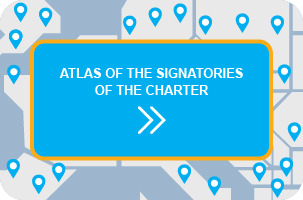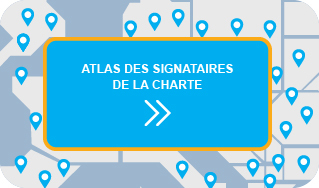Pilot project
What is the Pilot project?
The Pilot project is a two-year project (from January 2014-December 2015) funded by the European Commission aiming to develop indicators to measure the implementation of the European Charter for Equality of women and men in local life, a document launched by CEMR in 2006 (Click here for further information about the Charter).
The Pilot project is contributing to the activities started in the framework of the project of the Observatory (Click here for further information about the Observatory) and responds to a need expressed by signatories of the European Charter for Equality to get further support for evaluating and following-up the implementation of the Charter.
To deliver the project, CEMR is collaborating with the Consultancy Agency ICF and the Basque University in Spain.
Objectives of the project:
-
Monitoring the state of play of the Charter, its signature and its state of implementation (the outcome of this step is to elaborated “Member state factsheets” including/presenting information about the situation in the different EU –countries)
-
Developing scientific indicators that will allow monitoring the articles of the Charter;
-
Monitoring the implementation of the articles of the Charter by applying the indicators to the signatories
-
Developing a toolkit for using the expected indicators to create a basis for self-assessment
-
Organisation of a final conference to present the results of the project
Main activities carried out so far (updated in January 2015)
As a part of objective 1 “Monitoring the State of play of the Charter and its state of implementation” the Study team elaborated and disseminated a questionnaire to all signatories of the Charter in EU Member states. The overall response rate of the questionnaire was 18,5 %.
Process for selecting the indicators
Based on the results of the questionnaire, Member State factsheets were elaborated to present the current state of play of the implementation of the Charter in different countries. Furthermore, an analysis was made of the monitoring systems currently in place and the indicators already developed by local authorities. Thanks to this analysis, the study team elaborated a first list of indicators including at least one indicator by article of the Charter.
The Study team presented the first list of indicators at a workshop organised in Brussels on the 11th of July. Experts’ members of the Steering Group of the Pilot project, representatives from the European Commission and representatives from a selected number of local authorities participated in the workshop and provided their inputs on the suggested indicators.
Testing phase
The indicators agreed upon during this workshop were sent to a selected number of signatories that were able to test them during the months of July to September 2014. During these months, the signatories applied the indicators to their local context. An analysis of the feedback of signatories was made and presented during a second workshop in Brussels in November 2014. Following this meeting, the study team revised the indicators further and proposed a final list of indicators to the European Commission who approved it at the beginning of December 2014.
Monitoring phase
In January 2015, the project entered the monitoring phase in which the signatories are invited to participate and use the indicators to monitor their gender equality policies. The monitoring will run until the 15th of March 2015. The results of the monitoring will be presented in a report elaborated by the study team and also available through an online database.
What’s next?
- Development of a toolkit for the indicators
A toolkit will also be developed in order to support local and regional authorities in their use of the indicators. It will be tested among a selected number of local and regional authorities in different countries in order to make sure it is adapted for different contexts. The aim of the toolkit is to support signatories to make a self-assessment of their gender equality policies by using the indicators. It will be available for all signatories at the end of the project so they can use the indicators in the forthcoming years.
- Organisation of a final conference
The outcomes of the project including the final indicators and the toolkit for self-assessment will be presented at a final conference that will be organised in Brussels in October 2015. It will be the occasion to present good practices of monitoring and implementation of gender equality policies from local authorities signatory of the Charter from all over the European Union. In addition, some signatories will be awarded prices of ”good practices” for their work with the Charter and their active participation in the pilot project.
Note: EU policies – contextual background
The Pilot project goes in line with the objectives of the European Union in promoting and enhancing equality between women and men, stated in the Treaty on the European Union and reinforced gradually since 1990 through various legislation and strategies, which include:
-
Treaty on the European Union;
-
Charter of Fundamental Rights;
-
Lisbon Treaty;
-
Commission’s Strategy for Equality between Women and Men 2010-2015;
-
European Pact for Gender Equality; and
-
EU 2020 Strategy.
-
(In addition, – the Beijing Declaration and Platform for Action, initiated in 1995 during the Fourth World Conference for women is also relevant to mention in this perspective)
For more information:
-
Durmish Guri – Project Coordinator – durmish.guri@ccre-cemr.org – +32 2 500 05 48
-
Annelies Coessens – Policy Officer – Gender, Diversity and Migration – annelies.coessens@ccre-cemr.org – + 32 2 500 05 49















